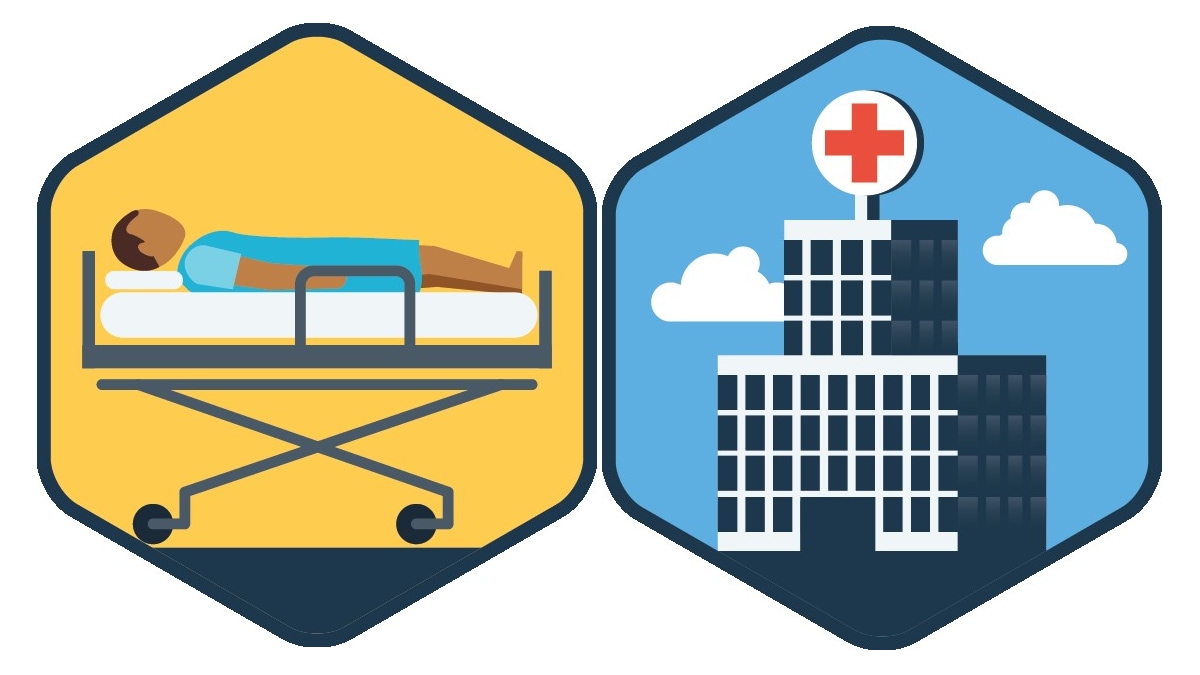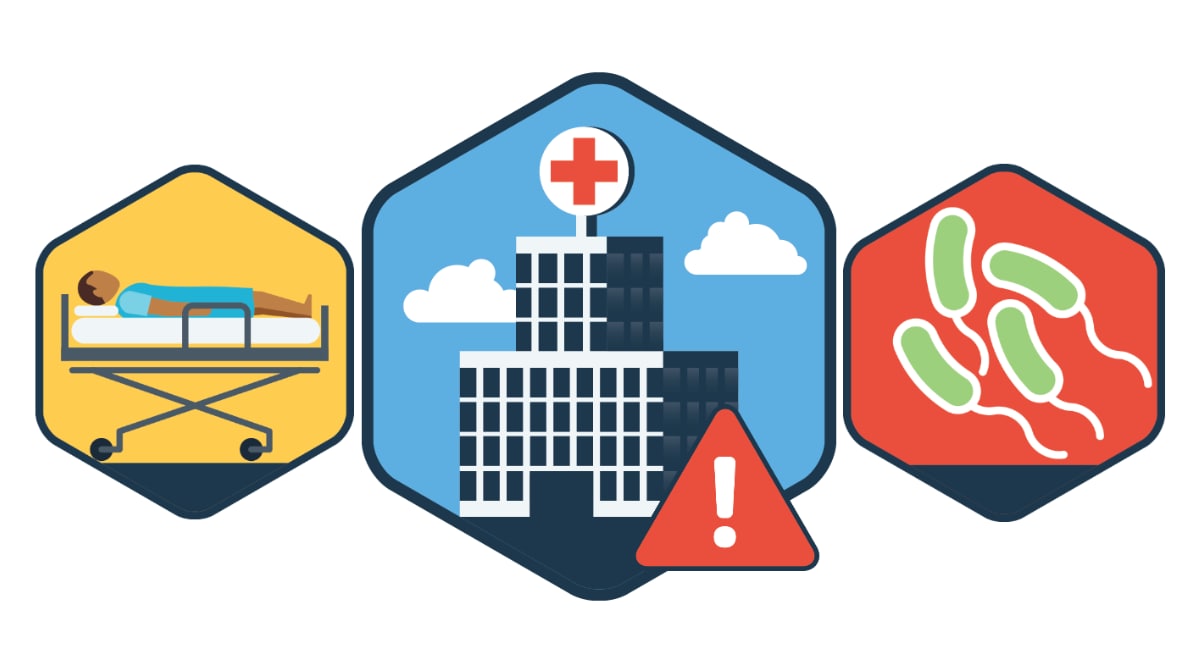What to know
- It's important to consider a patient’s exposure to healthcare settings when investigating the source of potential Legionnaires’ disease outbreaks.
- Healthcare facilities often have large, complex water systems and devices that produce aerosols.
- They also serve patients who often have risk factors for Legionnaires' disease.

Background
Healthcare facilities often have large, complex building water systems. They frequently undergo construction and plumbing changes.
In addition, they often have aerosol-producing devices like cooling towers and decorative fountains. Devices unique to healthcare facilities include:
- Heater-cooler units
- Hydrotherapy tubs
- Ice machines
- Respiratory therapy equipment
Healthcare facilities can also have other fixtures that may grow or spread Legionella (e.g., shower hoses).
Patients in these settings often have risk factors for Legionnaires' disease that include:
- Advanced age
- Chronic medical conditions
- Weakened immune systems
Tools in this section
Defining Healthcare Facilities and Associated Cases
Deciding Whom to Test in Healthcare Settings
Planning Investigations in Healthcare Facilities
Looking for Additional Healthcare-associated Cases
Implementing Control Measures in Healthcare Facilities
Preventing Healthcare-associated Legionnaires' Disease

